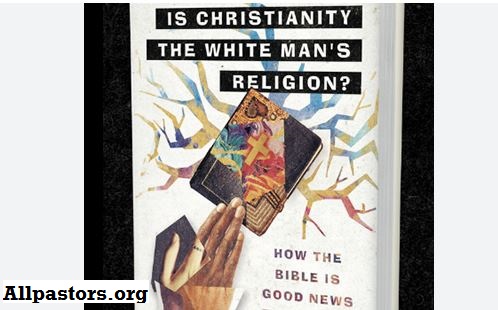Christianity is a religion that has spread throughout the world and has been embraced by people of various races and ethnicities. However, there has been a long-standing debate about whether Christianity is a “white religion.” This belief is based on the fact that most early missionaries and evangelists were European and that Christianity has been used as a tool of colonialism and oppression. In this blog post, we will explore this topic in detail, examining the history of Christianity and its relationship to race and ethnicity. We will also answer some frequently asked questions about this topic ”Is Christianity a white religion?”
The Origins of Christianity
Christianity originated in the Middle East, specifically in Palestine, which was then part of the Roman Empire. Its founder, Jesus Christ, was a Jew who lived in the first century AD. He taught his followers about the Kingdom of God and how to live a righteous life. Christianity began to spread after his death and resurrection, first among Jews and then among Gentiles (non-Jews). The early Christian church was very diverse, consisting of Jews, Greeks, Romans, and people from other ethnic groups.
Christianity and Colonialism
One of the main reasons why some people view Christianity as a “white religion” is because of its association with colonialism. European countries such as Spain, Portugal, France, and England used Christianity as a tool to justify their colonization of other parts of the world. Missionaries and evangelists were sent to these areas to spread Christianity, but they also imposed European culture and values on the native populations. This led to a blending of Christianity and European culture, which some people view as a form of cultural imperialism.
Christianity and Slavery
Another reason why some people view Christianity as a “white religion” is because of its association with slavery. Many slave owners in the United States were Christians who used the Bible to justify their ownership of slaves. They believed that Africans were inferior and that slavery was part of God’s plan. This belief was based on a misinterpretation of certain Bible passages that were taken out of context. However, many abolitionists were also Christians who believed that slavery was a sin and a violation of God’s law.
Christianity and Racism
Christianity has been used to justify racism throughout history. Some Christians believed that people of certain races were inferior and that they were destined to be subjugated by people of other races. This belief was based on a misinterpretation of the Bible and was used to justify slavery, colonization, and other forms of oppression. However, many Christians have fought against racism and have worked to promote equality and justice for all people.
Christianity and Diversity
Despite its association with colonialism, slavery, and racism, Christianity has also been a force for diversity and inclusion. The early Christian church was very diverse, consisting of people from different races and ethnicities. Throughout history, many Christians have worked to promote peace and reconciliation between different groups. Today, Christianity is practiced by people of various races and ethnicities, and it continues to spread to new parts of the world.
Frequently Asked Questions:
Q. Is Christianity a “white religion”?
No, Christianity originated in the Middle East and has been embraced by people of various races and ethnicities throughout history.
Q: Was Christianity used to justify slavery?
A: Yes, some slave owners used the Bible to justify their ownership of slaves. However, many Christians also fought against slavery and worked to promote abolition.
Q: Has Christianity been used to justify racism?
A: Yes, Christianity has been used to justify racism throughout history. However, many Christians have also worked to promote equality and justice for all people.
Q: Can Christianity be practiced by people of all races and ethnicities?
A: Yes, Christianity can be practiced by people of all races and ethnicities. In fact, Christianity has been embraced by people of various races and ethnicities throughout history, and it continues to spread to new parts of the world. Christianity teaches that all people are created in the image of God and that all are equal in His sight, regardless of race or ethnicity.
Q: How can Christians promote diversity and inclusion?
A: Christians can promote diversity and inclusion by embracing people of different races and ethnicities, by learning about and respecting different cultures, and by working to break down barriers and promote unity. Christians can also work to promote justice and equality for all people, regardless of their race or ethnicity.
Conclusion:
In conclusion, the belief that Christianity is a “white religion” is not supported by history or by the teachings of Christianity itself. While Christianity has been associated with colonialism, slavery, and racism, it has also been a force for diversity, inclusion, and equality. As Christians, we should strive to promote unity and respect for all people, regardless of their race or ethnicity, and to work towards a world where all people are valued and treated with dignity and respect.
